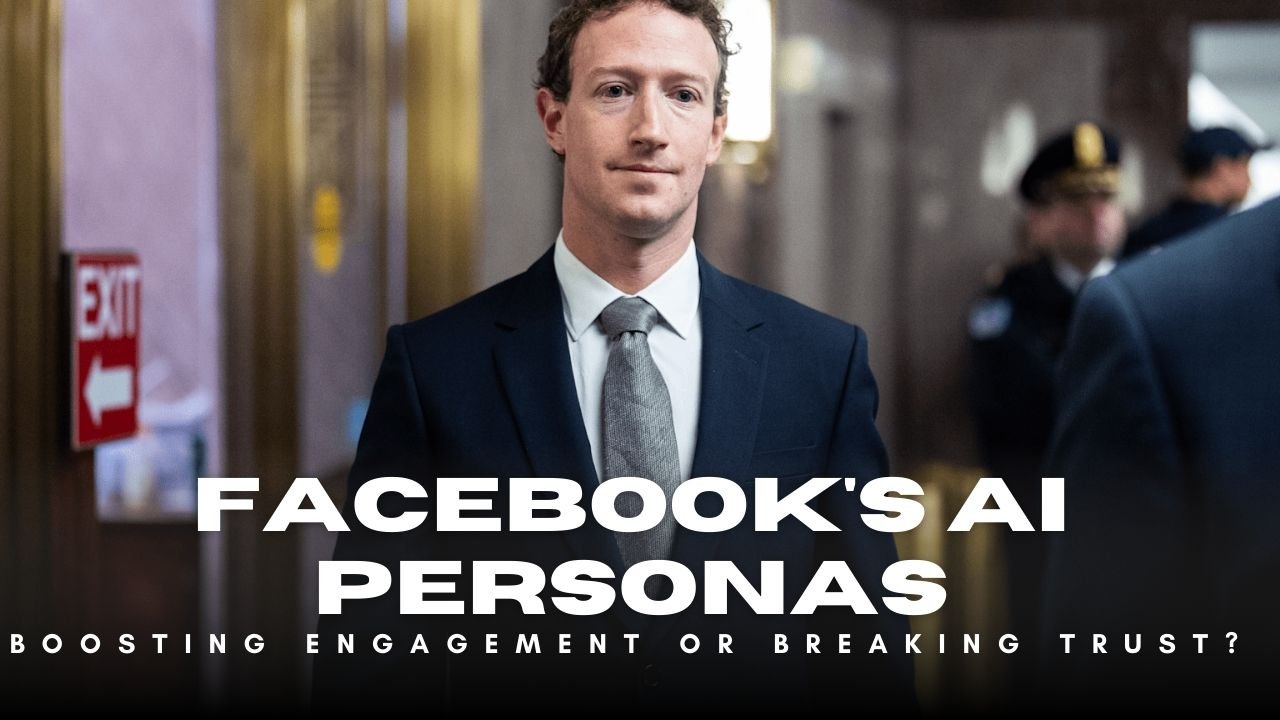What’s the Deal with Facebook’s AI Users?
Facebook (now under the Meta umbrella) is taking a bold step to address declining user engagement—by introducing AI-powered “users” to the platform. These aren’t just basic bots. They’re sophisticated, AI-generated personas with detailed profiles, bios, and the ability to interact like humans. Think of them as virtual influencers or assistants that can generate and share content, reply to messages, and even spark conversations.
The idea? To revolutionize how we engage on social media by keeping users hooked longer. Meta hopes these AI personas will inject fresh energy into Facebook, which many feel has lost its mojo. But not everyone is thrilled about this innovation.
The Promise of AI Personas: Innovation or Intrusion?
AI characters offer some intriguing possibilities:
- Interactive Assistants: Need cooking tips, travel advice, or even a pep talk? These AI personas could provide personalized support.
- Global Reach for Creators: Content creators could deploy AI assistants to manage mundane tasks like answering FAQs or handling customer queries.
- Seamless Integration: Built using Meta’s advanced Llama 3.1 model, these profiles can interact across platforms, including Messenger and WhatsApp.
Key Features of Meta’s AI Studio:
| Feature | Description |
| Customization | Users can design AI personas with unique traits and interests. |
| Cross-Platform Usability | Integrates with WhatsApp, Messenger, and beyond. |
| Content Generation | Creates bios, posts, and shares media seamlessly. |
| AI Tagging | All AI-generated content is labeled for transparency. |
While the concept sounds exciting, it’s also stirred up a storm of criticism.
What Are People Worried About?
The backlash against AI personas is real and loud. Users are worried about:
- Fake Over Real: Will AI content drown out genuine human creativity? Content creators, in particular, fear losing their audience to flashy, algorithm-driven posts.
- Privacy Nightmares: Meta has a sketchy history with user data. Imagine the data these AI personas might collect while mimicking human interactions. Potential issues include:
- Data breaches
- Unauthorized use of user content for AI training
- Blurred lines between real and fake profiles
- Misinformation: AI profiles could unintentionally spread false narratives or manipulate opinions, further eroding trust in social media.
Key Privacy Concerns at a Glance:
| Concern | Implication |
| Data Usage | Risk of using user-generated content for training AI without consent. |
| Surveillance | Increased data collection for running AI profiles. |
| Authenticity | Difficulty in distinguishing human accounts from AI personas. |
| Misinformation Risks | Potential spread of manipulated or false content. |
Public Reaction: Dystopian or Delightful?
Social media users haven’t held back their feelings about Meta’s move:
- “This feels like the beginning of a Black Mirror episode.”
- “Do we really need more fake interactions? Facebook is supposed to connect people.”
- “It’s bad enough we’re competing with influencers. Now we’re up against robots?”
While a small fraction sees the potential in using AI to combat fake news, the overwhelming sentiment is skepticism. Users fear losing genuine interactions and connections in a world dominated by algorithmic personas.
What’s Meta’s Plan to Address Concerns?
Meta has promised transparency by tagging all AI-generated content with an “AI Info” label. They’re also emphasizing the user-friendly nature of the AI Studio to encourage creators to experiment with these tools responsibly. But will these measures be enough?
The real test will be whether users can distinguish AI-driven content from human-generated posts and whether the platform can maintain a balance between innovation and authenticity.
Final Thoughts: Progress or Pitfall?
Meta’s AI personas could redefine social media—for better or worse. While the tech-savvy among us may appreciate the innovation, many are asking: Are we ready to sacrifice real connections for enhanced engagement metrics?
As this feature rolls out globally by 2025, one thing’s clear: Meta has a lot to prove if it wants to keep users’ trust intact. So, what do you think? Are AI personas the future of social media, or just another step toward a dystopian digital world?

